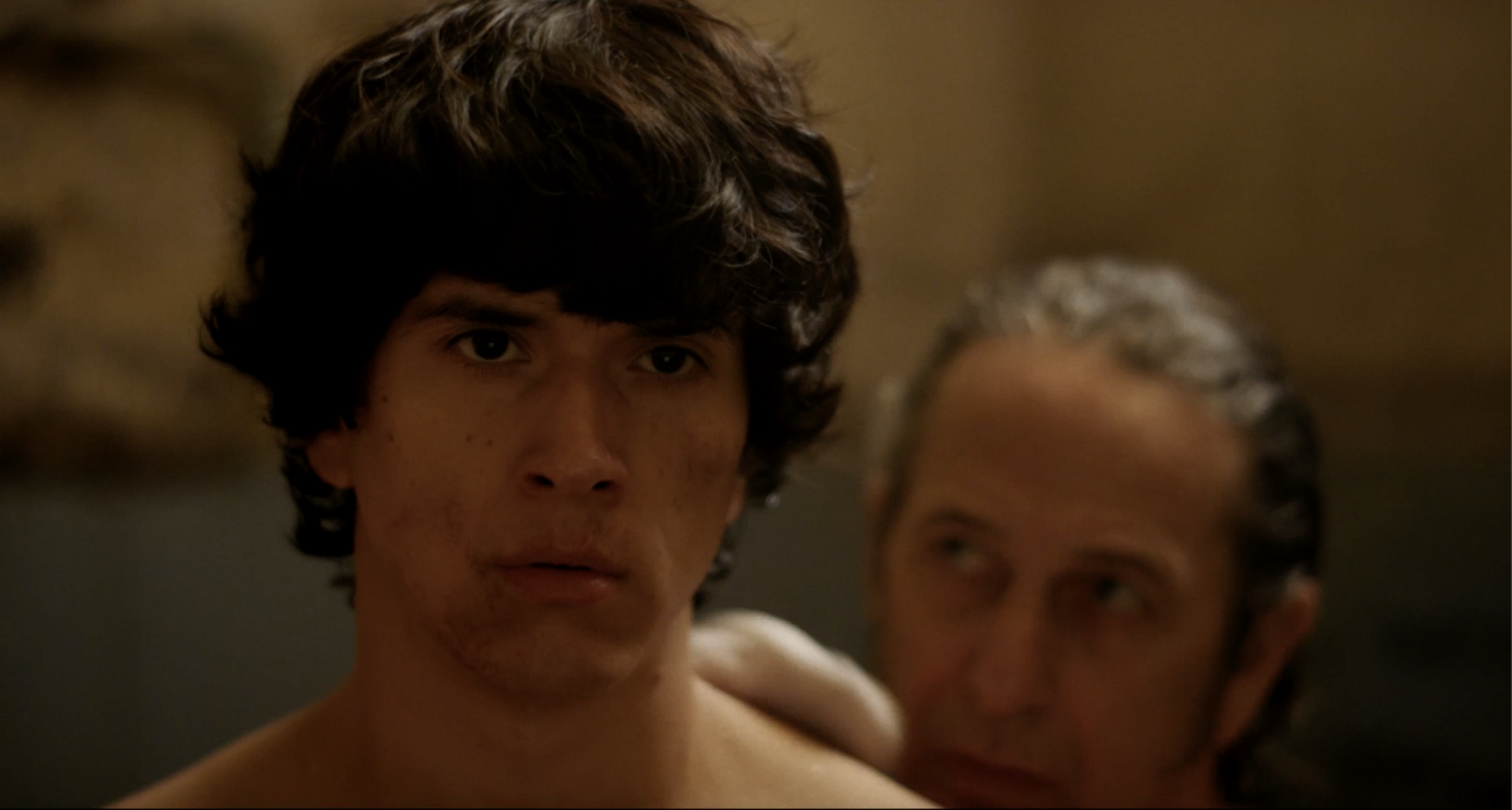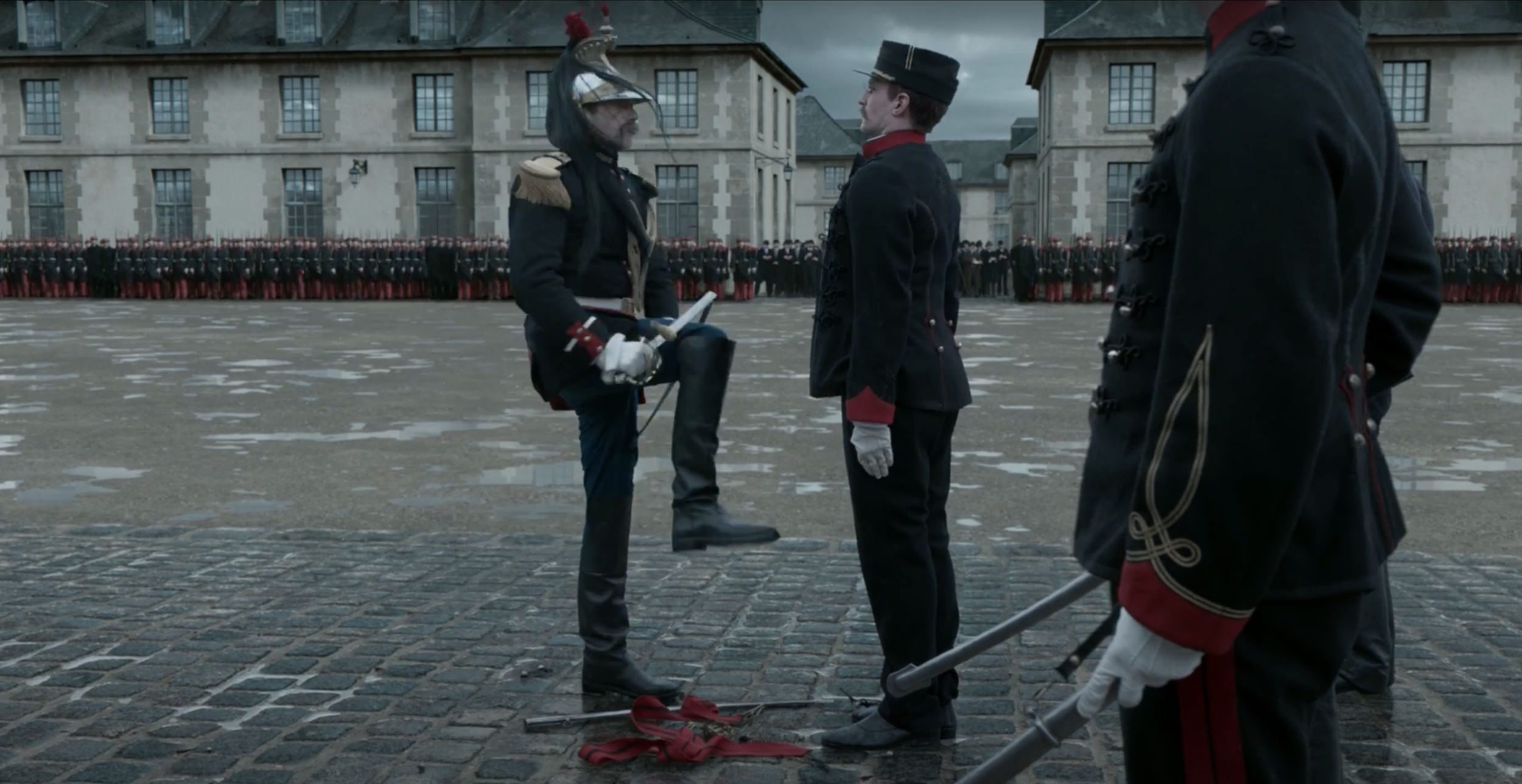The Prince (El Príncipe)
The Prince (El Príncipe)
Directed by Sebastián Muñoz
Starring: Juan Carlos Maldonado, Alfredo Castro, Gastón Pauls, Lucas Balmaceda, Sebastián Ayala, Cesare Serra, Catalina Martin, José Antonio Raffo, Paola Volpato
Country: Chile, Argentina, Belgium
Year: 2019
Review author: Roberto Matteucci
Click Here for Italian Version
“El Príncipe, primero.”
In a cell of an Argentine penitentiary, in the seventies, two men are locked up.
One is Luis Molina, a homosexual, convicted of underage corruption.
The other is Valentín Arregui, Marxist, revolutionary, belonging to a clandestine political group, imprisonment for subversion.
They are dissimilar, they have nothing in common; yet solitude, living together, sharing difficulties, will contribute to the birth of a deep friendship. The bond is the dream. The oral narrative of some films creates the illusion of staying in them.
They have little to eat, they are sick, they are bored, they are confused, so Molina gets into the heart of his companion by reciting films he has watched.
Manuel is the Spider Woman:
"You are the spider woman, who catches men in her net." (1)
Perhaps, the two has a sex act, despite Valentín is heterosexual.
It is the plot of The Kiss of the Spider Woman - El beso de la mujer araña. A book about dreams, with a radical imagination by the Argentine writer Manuel Puig.
Setting, character dichotomy, diversity, homosexuality, eroticism, dreams, the realization of two distinct and incompatible worlds, dictatorship, prison, humiliations, are the structural characteristics of Manuel Puig's novel.
The same peculiarities are in the film, set in Salvador Allende's Chile, El Príncipe – The Prince by director Sebastián Muñoz presented at the 76th Venice Film Festival.
We are in 1970, Salvador Allende, at the head of a socialist coalition, is elected president of Chile. A short and tragic event, the program encountered obstacles and social conflicts. The coup definitively broke Allende's experience. The motivation for the temporal and political choice is revealed by Sebastián Muñoz:
“It was a personal choice for me to use that discourse, which was not in the original novel. I chose that the movie started at the end of 1969 and it ended just on the day Allende took power. Because that discourse is a discourse of hope. And it is a speech that speaks about the harsh, difficult times that are going to come. So I wanted The Prince, when he is alone finishing work on the plush cat, putting in the eyes, to be listening to that discourse on the radio so the world could understand what that speech was about. Allende was a very good orator and I think that speech is really moving and touching nowadays.” (2)
Jaime is a problematic twenty-years-old boy. He is incarcerated in the San Bernando penitentiary, a city near Santiago. For jealousy, he killed his friend El Gitano. He is imprisoned with four inmates, one of them, the eldest, is Potro. He is the boss in his jail, decides who must leave and who must stay. The sensual gaze of the young Jaime strikes Potro. His first decision is to kick his lover out of his bed and replace him with Jaime.
Jaime is haughty, his mind flying over everyone. As soon as he arrived, he was forced to suffer the cruel rules of prison but so far has not succumbed to cynicism like the inmates with long time incarceration.
For this attitude, for his narcissism, Potro will call him Príncipe and there will be love and esteem. Nevertheless, it is a love in captivity, narrow in a few square meters, full of violence. In a small space with a lot of cruelty, love can only explode.
The similarities with The Kiss of the Spider Woman are evident, obvious.
The setting in a prison, with numerous privations and brutalities.
The historicization in a South American country, with a military regime already in Argentina, and another in embryo in Chile.
Potro and Príncipe are dissimilar. Both are very dissonant; one elderly heterosexual, married; the other one adolescent, dreamer, with homosexuality not yet perceived.
Abused sexuality, but also affectionate and loving.
Another aspect is the stories of the Príncipe, he always narrates because Potro pushes him. The Príncipe is happy, he likes talking about his life and, for the first time, he undresses in front of other people, both metaphorically and physically.
The Príncipe initially has a repressed lust, inhibited sexuality. Jealousy will be the reason for a rash, impulsive and violent gesture. These repressions will be released within the prison both for the search for a different sexual object, and because it is an accepted habit in jail. The Príncipe, therefore, has a sense of guilt from which he will have to free himself.
Potro is lustful, has an uncontrolled sensuality. Staying many years in prison increases his envy. Sentiment spread in a restricted environment, with ephemeral loves and easily replaceable. Some even try to buy affection and physical pleasures.
The long detention, as well as the cynicism, caused him unreasonable anger.
However, Potro performs a gesture of generosity, unexpected compared to his previous behaviour. He is in love.
Both Potro and Jaime acquire the particularity of being both sadistic and masochistic at the same time:
“The roots of active algolagnia sadism, can be readily demonstrable in the normal. The sexuality of most men shows a taint of aggression, it is a propensity to subdue, the biological significance of which lies in the necessity of overcoming the resistance of the sexual object by actions other than mere courting.
Sadism would then correspond to an aggressive component of the sexuality impulse which has become independent and exaggerated and has been brought to the foreground by displacement.” (3)
Potro in the first intercourse: "overcoming the resistance of the sexual object" without "actions other than mere courting" raping, with painful and furious manner, the Príncipe.
Subsequently, their roles will be reversed. The Príncipe will impose him a violent and animalistic anal coitus. Their sadism is justified by a kind of acceptance of life in prison.
The example is an equally brutal scene: perverted guards spit on a stick and use it to penetrate Potro's anus with wickedness.
The author emphasizes the Príncipe with another smart characteristic, it is literary and artistic particularity, the quality of a true Príncipe:
Q: The film starts with Jaime stabbing his best friend in what seems to be an outburst of passion. What is going on in Jamie’s life and mind that he acts out in such a violent way?
A: El narcisimo del personaje es el que lo movera durante toda la pelicula, matar a su mejor amigo y primer amor tiene que ver con el sentirse despechado ¿Por qué baila con otro y no conmigo?
(The narcissism of the character is what drives him during all the film. Killing his best friend and first love has to do with feeling disposed; why does he [Jaime’s best friend] dance with another person and not with me?) (4)
The director shoots him as Caravaggio's Narcissus while he gazes ecstatically at the reflection of his face in the water of the filthy prison floor.
In innumerable shots, there is a mirror, used, both for the narcissism of the young, and to reveal the weaknesses of the characters.
The oppressed sexuality is described in the childish relationship of the Príncipe with a mature woman, an elderly lady "mama acompagname". In a hotel, the camera films the closeup of her vagina, followed by sad intercourse with Jaime of a few seconds, accompanied by disgusting moans and sighs.
The psychological repression of the Príncipe is underlined in a sequence in the parlour. He has a visit from an old man, his father. A silent two-shot, without words, interrupted by the son with a categorical sentence "Never come again, do you understand?". At the same time, Potro is in parlour too, and he is kissing his wife, provoking the anger of the Príncipe.
Prison is the other undisputed protagonist.
The arrival of the Príncipe in the penitentiary. In the chiaroscuro, new convicts arrive and with the jailers through the prison. The only sound is the slamming of the grates. The procession is getting smaller and smaller. A prisoner is locked up, and a heavy iron gate bangs vigorously. One door after another. Everyone is indoors. The last one is Príncipe. He enters into the cell, high-light, to show the other half-naked prisoners. The misery of prison life is in the shrill noises of the grates.
In the bathroom scene, there is the depth of the characters and the selection of the position.
The sound is the roar of the showers, the step of some, the rubbing of washing clothes.
The mise-en-scene is a squalid, miserable toilet. Dirt, peeling walls, black from stagnant water, nasty writing everywhere.
The Príncipe is wearing ridiculous striped underwear. He is shy, frightened, around the other prisoners, already undressed, are at ease. The Príncipe takes his place in the centre of the frame. Two individuals cut diagonally the vision. In the background inmates with their penises out, wash themselves.
The camera is static.
Cut on the Príncipe, eyeline-matches. He stands on the side and looks Potro at ease while he is undressing. Nearby, there is the usual mirror.
Cut, Potro goes into the shower.
Cut, the boy takes courage and undresses, but puts his hands in front of his penis.
Mid-shot, even the Príncipe enters and goes alongside Potro.
The sequence changes. Long-shot, eight males are grouped in the shower, all nude, they disinterest each other. The Príncipe is uncertain and indecisive but Potro removes his embarrassment and to mark the territory, washing Jaime's back.
It is a shallow-space, highlights the sensation of the claustrophobia of a cell.
It is a theatrical scene; the eight men are in slow motion as in a theatre. This scenery is emblematic of the themes of the story.
Their love will cause a reversal of personality. The Príncipe becomes Potro, he is the new leader. He is the heir and everyone is lined up for condolences.
The film has an elegant technique.
Like photography. The director uses it carefully. Inside the prison, a dark light dominates, in the cells, there is an alternation between low-lighting and high-lighting.
The mise-en-scene studies in details: the record player, the bucket, the painting of the walls. There are omnipresent mirrors and the images reflected on the glass.
There is the irony of the photos of denuded women pinned when Príncipe sodomizes Potro leaning against the wall.
The music is strong, melancholy in some songs.
El Príncipe is a carnal, erotic, provocative, stimulating film. The excess of nudity of young males is a cross between the exaltation of Wilhelm von Gloeden's photographs and porn.
The iconic language of being in a phallocentric film emerges, with many penises of diverse sizes which appear and move anywhere. The iconography of the penis in prison is to be examined in the words of Manuel Puig in The Kiss of the Spider Woman:
“… What I need is a woman, because woman is the best of the best. … Yes, and I answer… wonderful! Okay, since women are the best of the best ... I want to be a woman." (5)
Therefore, the many penises evolve iconographically into a large vagina; prisoners want to be a woman.
Manuel Puig, Il bacio della donna ragno, Einaudi, Torino, Prima edizione Supercoralli nuova serie, 1978, translated by author
https://icsfilm.org/features/ssiff-interview-sebastian-munoz-el-Príncipe/
Sigmund Freud, Three Essays on the Theory of Sexuality Pag. 19
Manuel Puig, Il bacio della donna ragno, Einaudi, Torino, Prima edizione Supercoralli nuova serie, 1978, translate by author



























A metaphorical comparison between Akira Kurosawa’s Ikiru and its remake Living by Oliver Hermanus, presented at the 79th Venice Film Festival.